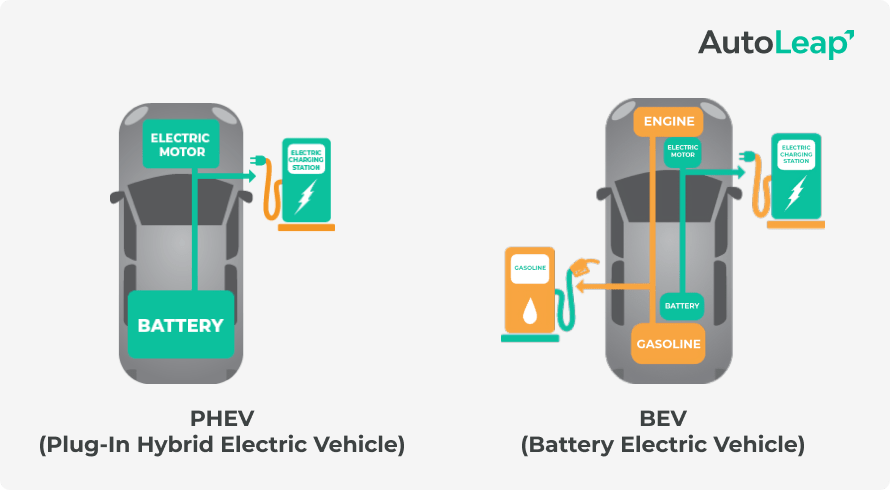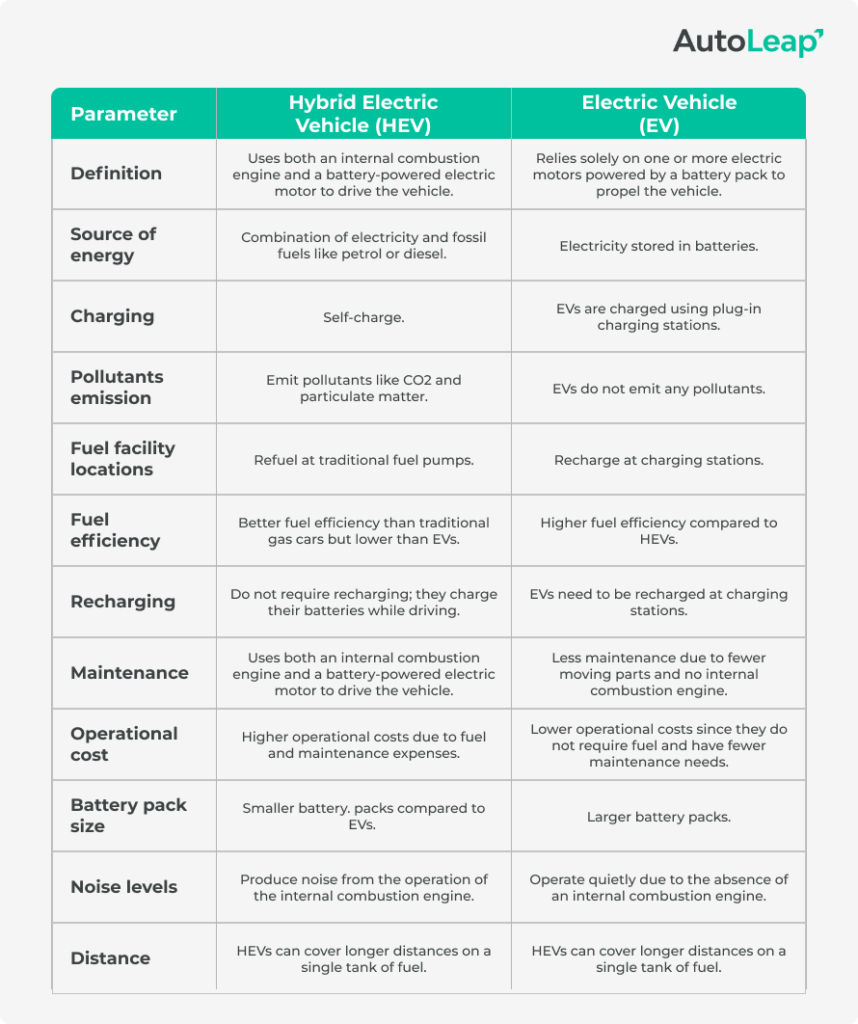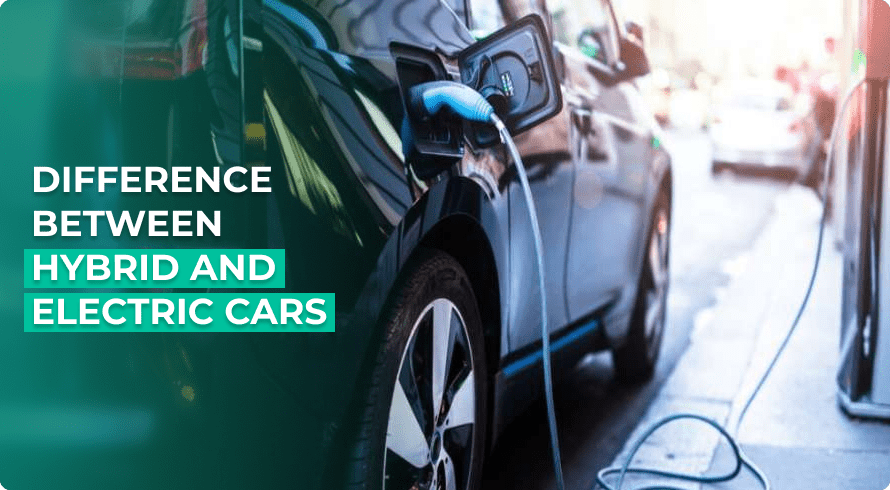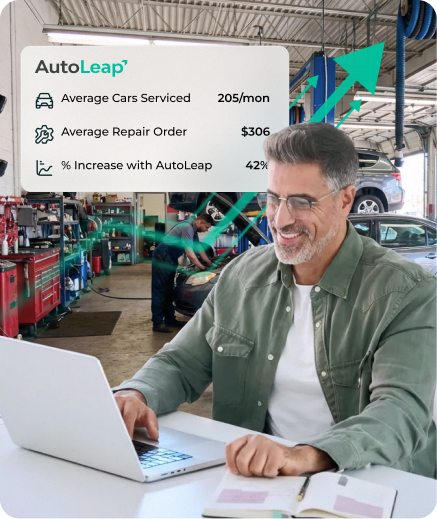Ever wondered what makes those smooth, silent cars you see on the road go? Or maybe you’ve thought about how your daily drive affects the environment? With sustainability on everyone’s mind, choosing between electric vehicles (EVs) and hybrid vehicles is super important. Let’s break down these eco-friendly rides and see how they differ, explore their advantages, and drawbacks.
Electric vehicles vs hybrid vehicles - what are the differences?
Schedule a free demo today!

Boost your shop sales

Simplify shop management

Empower your technicians
Electric cars or hybrids? While they seem similar, they are actually quite different. A hybrid car has both a gas engine and an electric motor working together to move the car. On the other hand, an electric car runs only on electric power from its battery.

Let’s dive deeper into what sets them apart.
What is an EV?
Picture yourself behind the wheel of a car that runs solely on electricity, leaving behind no harmful emissions. That’s the magic of Electric Vehicles (EVs).
Electric vehicles, or EVs, run on electricity stored in big batteries. These batteries are strong enough to let some EVs travel over 300 miles on a single charge. Unlike gas cars that need to stop at gas stations, you can charge EVs at home or at charging stations found across the country. Even auto repair shops are adapting to this change and equipping themselves with charging stations to care for EVs.
These cars ditch the traditional gas engine in favor of electric motors, offering a cleaner, greener way to get around town.
Pros of EVs
- No tailpipe emissions: EVs don’t produce any harmful exhaust fumes, helping to keep the air clean and our planet healthy. The Tesla Model 3 is a popular EV choice known for its sleek design and long-lasting battery.
- Lower operating costs: With fewer parts to maintain and no need for gasoline, EVs can save you money on maintenance and fuel. The Nissan Leaf is an affordable EV option with impressive fuel savings for budget-conscious drivers.
Cons of EVs
- Limited charging stations: Finding a place to charge your EV can be tricky, especially on long trips or in rural areas with few charging stations. While big cities may have plenty of charging options, smaller towns may not be as EV-friendly.
- Range anxiety: Worried about running out of battery power? That’s what range anxiety is all about. It’s a common concern for EV owners, especially when traveling long distances. Even though some EVs like the Chevrolet Bolt EV offer decent driving ranges, not having easy access to charging can make some drivers nervous.
EVs available today
In 2020-2021, the number of EVs almost doubled to over 600,000. Now, there are over 2.5 million EVs on the road in the US. EVs are becoming more popular every year!
There is an amazing range of electric vehicles to choose from these days. From the Tesla Model 3, with its sleek design and long-range capabilities, to the Ford Mustang Mach-E, blending performance and sustainability. Most car makers have at least one EV in their lineup. Whether you want a small car, a family SUV, or a truck, there’s an electric option for you. EVs come in different price ranges and styles, so there’s something for everyone.
What is a hybrid vehicle?
Now, let’s talk about hybrids. These vehicles are the happy marriage between traditional internal combustion engines and electric power. They offer the best of both worlds, combining a gas engine with an electric motor to reduce fuel consumption and emissions.
Pros of Hybrids
- Better gas mileage: Hybrids use electric power to help the gas engine, giving you more miles per gallon and saving you money on fuel. For example, the Toyota Prius is a well-known hybrid that’s praised for its excellent fuel efficiency and eco-friendly features.
- Lower emissions: Even though hybrids still use gas, their hybrid systems help cut down on overall emissions compared to regular cars. For example, the Honda Insight is a stylish hybrid that combines fuel efficiency with sleek design, appealing to drivers who care about the environment.
Cons of Hybrids
- Higher upfront costs: Because of all the fancy technology they have, hybrids can be more expensive to buy than regular cars. While hybrids can save you money on gas in the long run, some people might be put off by the higher price tag at the beginning.
- Maintenance can be tricky: Hybrids have complex systems that need special care, which could mean more expensive repairs down the road. For example, hybrid batteries, while durable, might need replacing eventually, adding to the overall cost of owning a hybrid.
Hybrid vs plug-in hybrid
You might think all hybrids are the same, but there are some key differences.
- A plug-in hybrid needs to be plugged into a power source to charge, while a regular hybrid charges itself as you drive.
- Plug-in hybrids have bigger batteries, so they can cost more to charge, but they can also go farther on electric power.
- Plug-in hybrids can charge through regenerative braking, which helps save energy.
Differences between HEV and EV
Now that we’ve looked at hybrid electric vehicles (HEVs) and electric vehicles (EVs) separately, let’s dive into their key differences.

Closing thoughts
Whether you’re drawn to hybrids or fully electric cars, there’s a future-fueled ride waiting for you. Each has its perks and fits different needs. Hybrids can be a great transition from gas to electric, but it seems like fully electric vehicles might take over sooner than we think.
FAQs
Do hybrid cars last longer than electric cars?
Both hybrids and electric cars boast impressive longevity, with proper maintenance. However, electric cars often have fewer moving parts, potentially leading to fewer repairs over time.
Which is more efficient EV or hybrid?
EV is more efficient than Hybrid. They eliminate the need for gasoline altogether. And rely solely on electric power. This results in lower operating costs and a smaller carbon footprint.
What are the disadvantages of a hybrid?
Disadvantages of hybrid cars are that they still rely on gasoline and produce emissions. Additionally, hybrid vehicles tend to have higher upfront costs compared to their non-hybrid counterparts.









